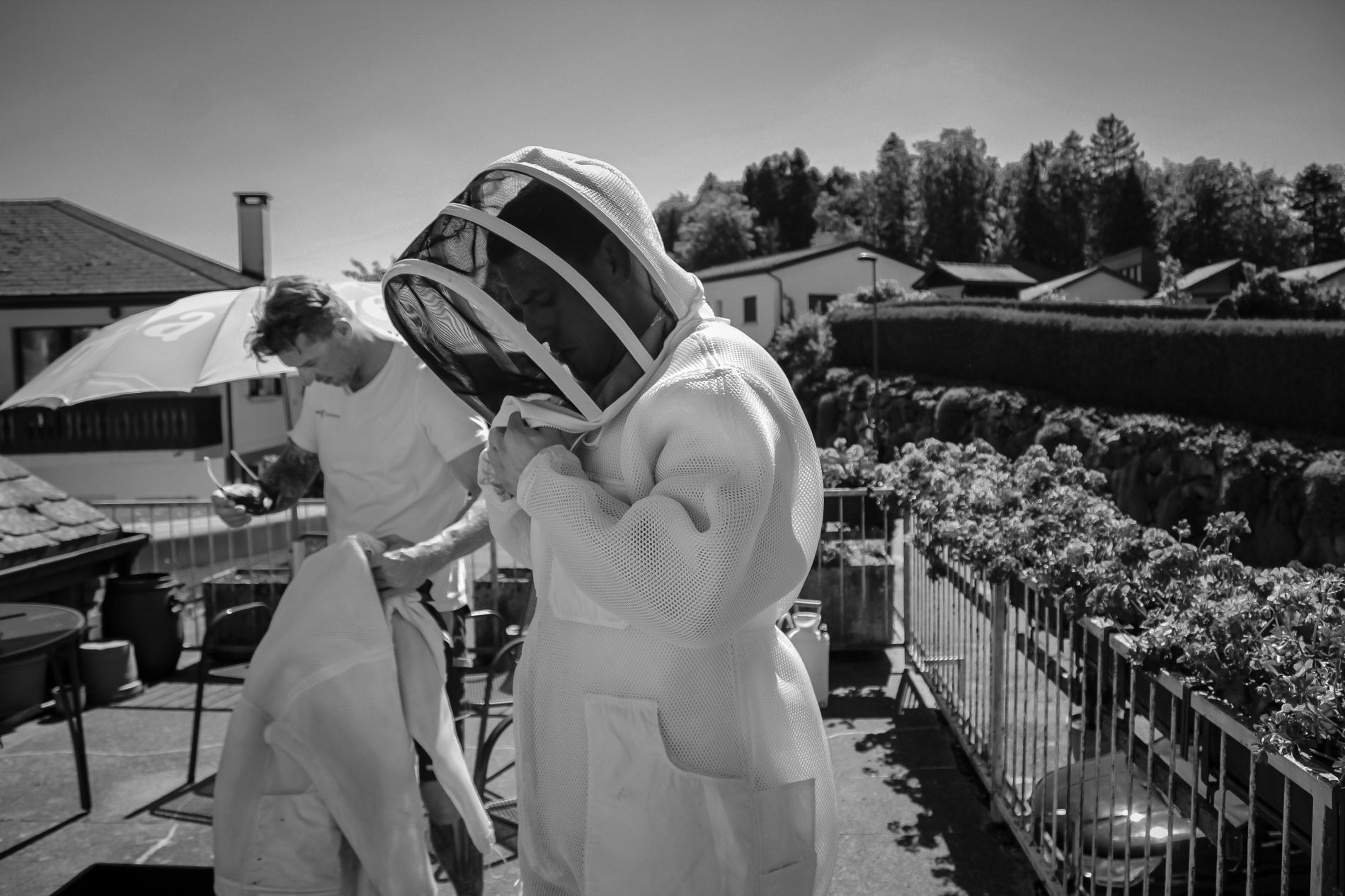
Fighting Asian hornets in Beggingen
Have you discovered an Asian hornet's nest? We'll be on site quickly! Call now - Daily Mon-Sun 07:00-21:30. Contact us now: 058 510 22 54
Having the Asian hornet's nest removed
The hornet species Vespa velutina, originating from South-East Asia, has successfully invaded Switzerland and other regions on the subcontinent. Despite exhibiting no aggression towards humans, it has become notorious for its hunting behavior towards honey bees, causing alarm among beekeepers. Even a small number of these hornets can swiftly attack and annihilate a bee colony within just a few hours. If you have discovered a hornet's nest on your house, patio, shed, or in your blind box, contact our experts for hornet nest removal in Beggingen!
Use the uncomplicated telephone service of the Hornet experts in Beggingen and simply inform us at 058 510 22 54, we will be on site quickly so that you and everyone in your area feel completely safe again.
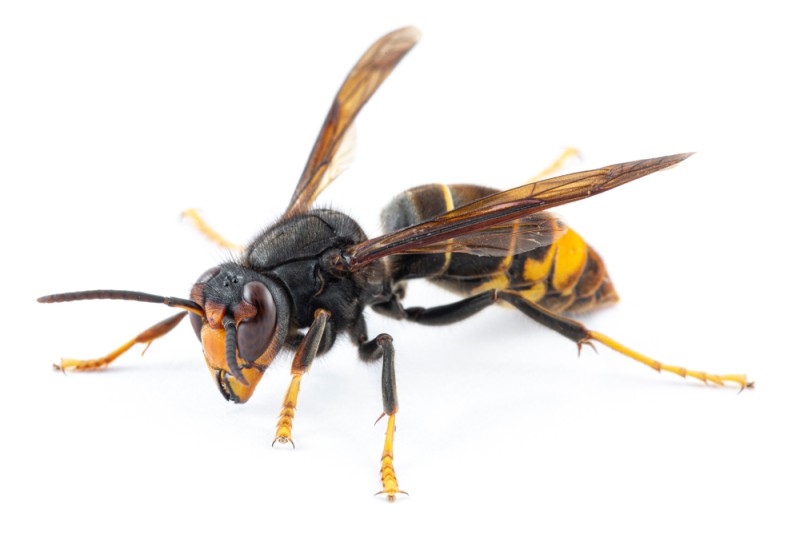

Appearance of the Asian hornet
Here are some characteristics that distinguish the Asian hornet:
1. Size: The queen can reach a length of about 3 cm, while the workers are slightly smaller and measure about 2.5 cm.
2. Color: The Asian hornet has a dark body that is almost black, with a yellow stripe at the back of the abdomen. Its face is orange-yellow.
3. Wings: The wings are dark and almost smoky gray.
4. Legs: The hornet has yellow tips on its legs, which is a striking distinguishing feature when it flies.
5. Nest: The Asian hornet's nest is often high in the trees, but it can also be found underground or in tall structures such as chimneys. It has an oval shape and is made of chewed wood, which gives the hornet a papery texture.
It is important to distinguish the Asian hornet from the European hornet (Vespa crabro), which is more harmless and a natural part of the European fauna. If you suspect you have found an Asian hornet nest near you in Beggingen, you should report this to the local authorities, or using our reporting form, as they can spread quickly and be harmful to bees and other insects. To avoid being attacked by the flying inhabitants, you should hire a professional pest controller such as the Hornet Experts Beggingen. We can identify the nest beyond doubt and take further steps to remove the Asian hornets professionally.
News about the Asian hornet in Beggingen
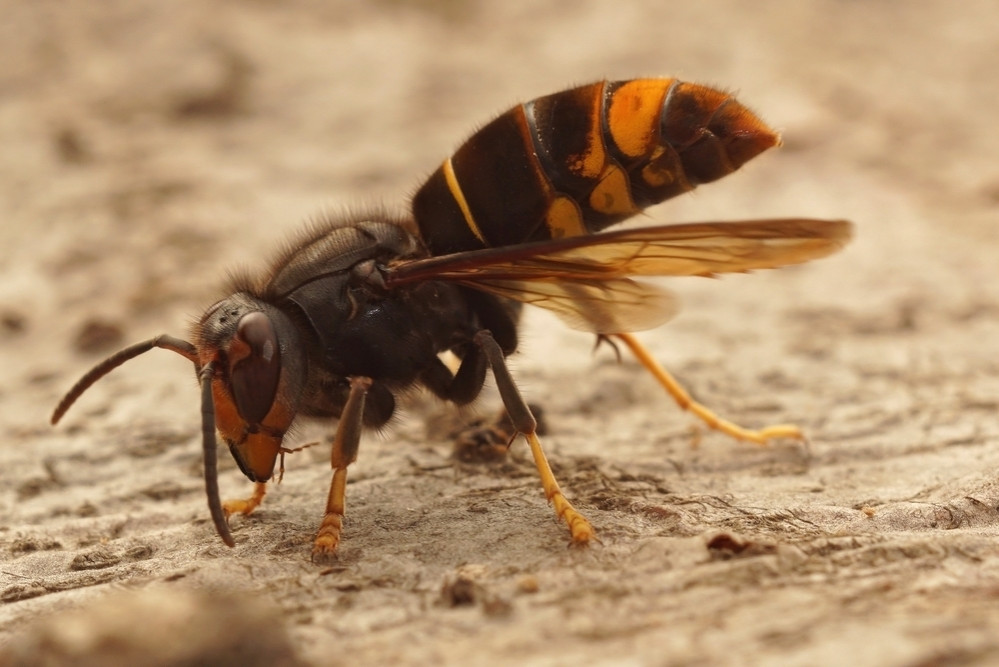
02.12.2025 Western Switzerland: Killer hornet eats bees
The territory of the Asian killer hornet has expanded considerably this year, with a notable increase reported in western Switzerland. This invasive species poses a significant threat to native bee populations, as bees make up the majority of its diet. The potential consequences are serious. Moreover, the hornet represents a danger to individuals with allergies to its venom.
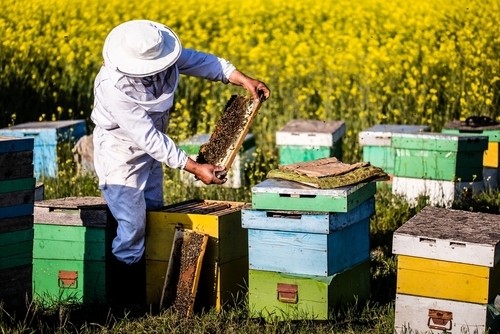
25.11.2025 Serious concerns about the bee population!
Asian hornets are inflicting significant harm on beehives across multiple parts of Europe, as reported by local beekeepers. Even a small number of hornets can destroy an entire bee colony within hours. This sharp decline in pollinators could have serious consequences for pollination, local ecosystems, and agricultural productivity.
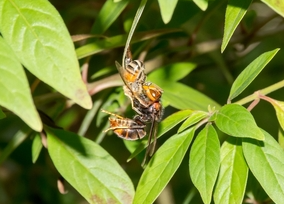
18.11.2025 Asian hornet doesn't just eat bees!
The danger it presents to insects is substantial!
The Asian hornet feeds largely on honeybees—up to 85 percent of its diet—alongside beetles and flies. This high level of predation not only poses difficulties for fruit growers but also further threatens already vulnerable bee populations.
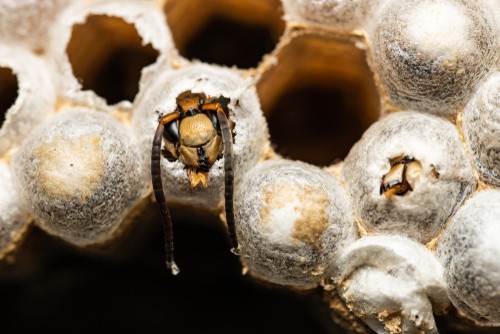
11.11.2025 How did the Asian hornet get to Europe?
The Asian hornet likely arrived in Europe unintentionally and has quickly expanded throughout France and nearby countries. Its adaptability to different environments and the absence of natural predators have contributed to its rapid spread. A single nest can generate several hundred new queens in one breeding season.
Asian Hornet Reporting Form
Please fill out all required fields and submit the form.
Help us!
If you discover an Asian hornet or a nest of this invasive species in Beggingen, it is of the utmost importance that you report it immediately. The Asian hornet is not only dangerous to humans, but also poses a serious threat to native bee populations and the ecological balance in Switzerland.
Why is it important to report the find?
In regions where the Asian hornet establishes itself, it has a pronounced effect on native insects, honey bees in particular. By actively hunting bees, these hornets drive a decline in pollinator populations, ultimately influencing the balance of local flora and agricultural production. By reporting sightings, experts can react quickly, remove the hornets or their nests and thus prevent the spread of this invasive species.
Notification form for sightings
Preserving the balance of our ecosystems and protecting our native insects from the overpopulation of Asian hornets in Switzerland necessitates your active engagement. We urge you to report any suspicions or sightings via our dedicated reporting form. With your support, we can take prompt action and mitigate the spread of this dangerous species, ensuring the well-being of our invaluable ecosystems.
Your contribution is crucial in the fight against the Asian hornet in Beggingen. Together we can protect nature and maintain the balance of our ecosystems;
Thank you for your vigilant attention and your commitment to protecting our environment.
How dangerous is the Asian hornet?
The Asian hornet (Vespa velutina) is a predatory insect that originated in Asia and has spread in recent years to various parts of Europe, including France and now also Switzerland and in Beggingen. Although it poses a threat to honey bees and native biodiversity, it is generally no more dangerous to humans than other wasp species. Nevertheless, there are some aspects to be aware of:
1. Threat to honey bees: The Asian hornet preys on honey bees, threatening native bee populations. A decline in bees can have a negative impact on pollination and thus on local flora and agricultural production.
2. Stings: As with other wasp and hornet species, the stings of the Asian hornet can also be painful. For most people, the stings are unpleasant but not dangerous. However, people who are allergic to wasp or hornet stings can suffer a severe allergic reaction, which in the worst case can lead to anaphylactic shock.
3. Aggressiveness: Although the Asian hornet is not necessarily more aggressive towards humans than other wasp species, it can become aggressive if it feels threatened, especially near its nest.
4. Ecological effects: Apart from the direct effects on honey bees, the spread of the Asian hornet can also disturb the ecological balance by affecting the populations of other insects.
Recognizing the difference between the Asian hornet and the Asian giant hornet (*Vespa mandarinia*) is of utmost importance. The giant hornet, often known as the "killer hornet," is significantly larger and has the potential to be more dangerous to humans due to its more powerful venom and the size of its sting.
If you have discovered a nest, call us immediately: 058 510 22 54
Our hornet professionals in Beggingen are certified by the VSS.
Frequently Asked Questions About Asian Hornets in Beggingen
With its potential to cause stings that are potentially serious and even fatal, the Asian hornet is an insect of heightened danger compared to most other hornet species.
Standing out with its size, the Asian hornet is a significant stinging insect that can grow up to 3 cm long. Its elongated, ebony body showcases a striking color palette of orange, yellow, and black, arranged in dense, captivating stripes.
Humans should be cautious of the Asian hornet's venom due to its toxicity. Their bites can cause significant pain and may provoke allergic responses.
The Asian hornet's poisonous nature makes it particularly dangerous to humans, as its bite can cause excruciating pain and engender allergic reactions.
Caution must be exercised around the Asian hornet due to its venomous sting, distinguishing it from other wasps. Its sting induces more pain and has the potential to cause allergic reactions.
Should you encounter an Asian hornet, it is imperative to notify a regional officer specialized in wild bee conservation or an authorized agency under the Ministry of Agriculture to file an accurate report.
It is of utmost importance to report sightings of Asian hornets in order to avoid potential attacks and limit the proliferation of this insect. Their particularly territorial and aggressive behavior highlights the need for vigilance.
Professional hornet control is a crucial requirement in Switzerland when confronted with Asian hornets. To ensure effective management, it is advisable to seek the assistance of a pest control service by placing a call.
The Asian hornet does not enjoy protected status. It is, therefore, imperative to establish a robust monitoring system to effectively control their numbers and minimize their potential for proliferation.
When hibernating, the Asian hornet displays two hibernation habits: gathering in colonies for communal hibernation or isolating itself in solitary hibernation, often choosing the corners of walls, buildings, garden sheds, incidental structures, or tree hollows for refuge.
Would you like more information about Asian hornets? Then take a look at our FAQ's about Asian hornets.
Private inquiry form
For an uncomplicated request to remove an Asian hornet's nest, please use our contact form for private individuals.
Real estate inquiry form
Use our property management order form to request the removal of an Asian hornet's nest.




_24.jpeg)
_23.jpeg)
_27.jpeg)
_28.jpeg)